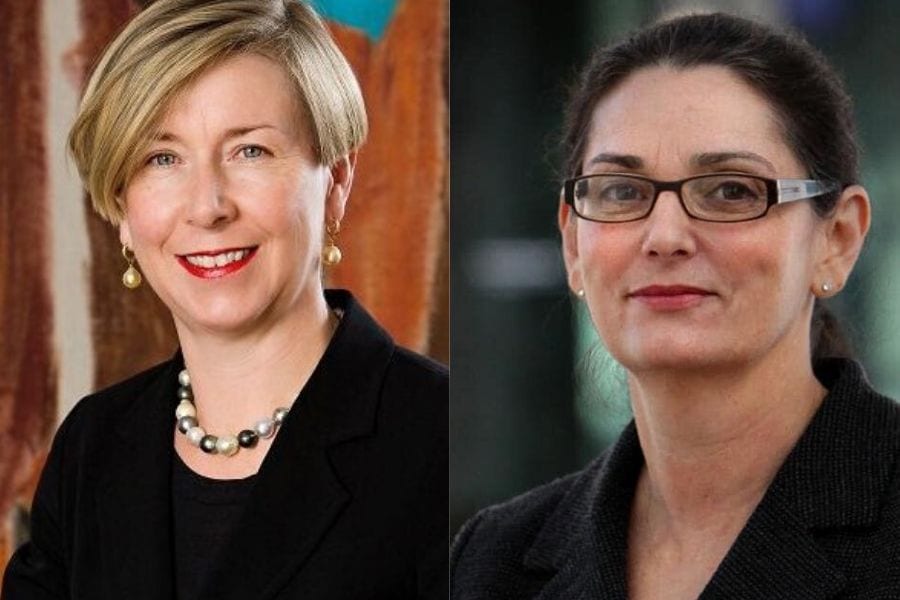The Commission’s been created by the Morrison Government to help address an extraordinary set of challenges over the days, weeks and months ahead. Their shared contacts, networks, ideas and ability to make big shifts happen will be essential for how Australia responds.
I want every individual on the commission to succeed in their ability to work with each other to form a strong, collective effort and come up with the best ideas possible — for re-deploying workforces to areas of need, for addressing supply chains and manufacturing lines, for keeping trucks moving and ensuring internet speeds can keep up. This is significant work.
But I wish there was some more diversity among the individuals selected — or possibly additional individuals selected who may be able to better support bringing a greater diversity of ideas to the table, as well as those who can also help deliver a greater understanding of a wider range of community needs.
It’s not just that there are too few women involved, it’s also that the group lack diversity across a number of other factors also.
The Commission was announced following the “very difficult changes” to many Australian businesses over the past week, that saw many having to close those doors and thousands immediately out of work.
While we don’t have the figures on the gender make-up of those who’ve lost their jobs, we do know that the casual and part time workforce has been significantly hit and is likely to feel the blow well into the future — parts of the workforce where women make up the majority.
We also need to consider the caring responsibilities that women are likely to further take on during this period — whether they still have work or not. With schools either closed, or parents encouraged to keep their kids home if they can; with daycare centres facing possible closures and many parents choosing to keep their kids home regardless; with parents making the tough and heartbreaking decision to stay away from grandparents; with single parents facing the challenge of doing it all alone. We must consider the wider implications of growing unpaid caring responsibilities during this period and beyond, the bulk of which are already taken on by women. These are factors I believe should form part of this Commission’s mandate, especially as it’s also tasked to consider how the workforce recovers.
Announcing the commission, Prime Minister Scoot Morrison noted the need for Australians to be able to absorb the information that is coming up and make sense of the changes occurring.
Already, this information has been confusing: earlier on in the week, we heard mixed messaging regarding what can and can’t stay open. Initially, hairdressers could remain open for appointments, as long as clients were out within 30 minutes. Gyms would close, but outdoor training camps of up to ten people could go ahead. These decisions were made prior to the Commission being announced — and maybe moving forward it will be communicated a little better with the support of these leaders — but this Commission should also be an opportunity to better factor in the different needs of the community regarding what constitutes an ‘essential’ service.
Nev Power, the former CEO of Fortescue, has been appointed executive chairman of the Commission and appeared next to Scott Morrison during the press conference announcing its formation.
He said their role will be to, “look for those challenges and opportunities”, to figure out where workforces and equipment can be redeployed, where supply chains and logistics can be shifted, as well as looking to the future.s.”
Nev Power is joined on the National COVID-19 Commission Executive Board by ME Bank director Greg Combet AM, leading public servant Jane Halton AO, former Toll managing director Paul Little AO, Energy Australia managing director Catherine Tanna, former Telstra boss and now CSIRO chairman David Thodey AO (who is Deputy Chair).
On the board also is Secretaries of the Department of the Prime Minister and Cabinet, Philip Gaetjens and Home Affairs, Mike Pezzullo.
It’s clearly an impressive lineup of leadership, but is it enough?
I put the question to Director of Harcourts Move, Sadhana Smiles, who has written extensively on the importance of diversity in leadership for Women’s Agenda.
She said she immediately noticed diversity was lacking upon seeing the announcement, but had personally questioned whether now’s the time to call it out.
“But if they are tasked with making sure that we come through this and our business and communities are ok then, as I have always said, no matter what your business or in this case your taskforce is, it must represent the colours of the community,” she said. “And on this case it is glaringly obvious. Where are the people of colour, different ability and sexuality?”
“As a migrant, a woman of colour, my first thoughts were, how are they going to know what my needs are or my community needs are? The future is not all white.”
Again, I wish this Commission absolute success, but I can’t help but think success could come a little easier with a wider mix of people involved.


